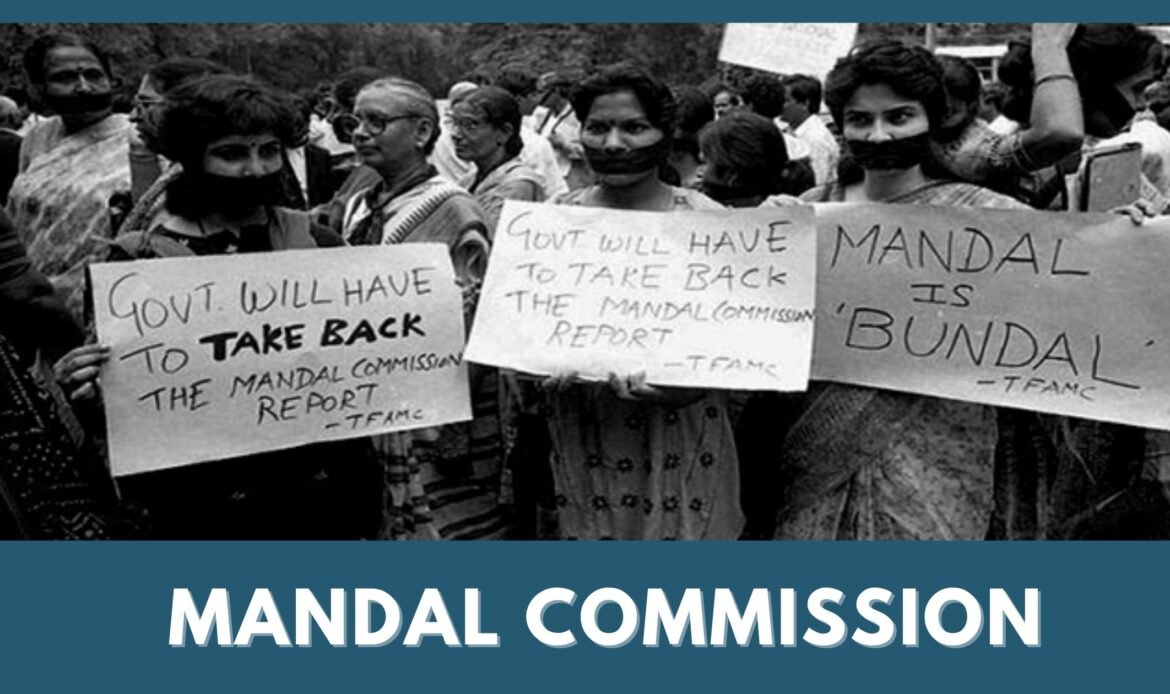The Mandal Commission, established in 1979, was a significant step towards addressing the socio-economic disparities among various communities in India, particularly focusing on the Other Backward Classes (OBCs). This commission was tasked with the crucial responsibility of identifying the socially and educationally backward classes and recommending measures for their upliftment. Wait, are you an Indian unaware of the Mandal Commission? In this scenario, this article might help you.
Background Surrounding Mandal Commission
Before the Mandal Commission’s establishment, a notable need existed for comprehensive data regarding the socio-economic conditions of the backward classes in India. This lack of data contributed to their underrepresentation in crucial spheres such as education and employment. Many communities faced systemic discrimination and limited access to opportunities due to their socioeconomic status.
What Was The Mandal Commission’s Work?
The primary mandate of the Mandal Commission was to conduct a thorough assessment of the social and economic conditions of the Other Backward Classes. This involved gathering extensive data and analyzing the socio-economic indicators to identify communities that were socially and educationally backward. The commission was also entrusted with the responsibility of formulating recommendations to address the challenges faced by these communities and to promote their socio-economic development.
Mandal Commission’s Findings
After years of rigorous research and analysis, the Mandal Commission identified 3,743 socially and educationally backward communities. These communities belonged to various regions and had distinct socio-economic backgrounds. Based on its findings, the commission recommended implementing reservation policies to ensure equitable representation of OBCs in government jobs and educational institutions. The recommendation included a provision for 27% reservation for OBCs in these sectors.
Controversy Around Mandal Commission
The recommendations put forth by the Mandal Commission sparked widespread controversy and debate across the country. While many supported the implementation of reservation policies as a means of addressing historical injustices and promoting social inclusion, others raised objections, citing concerns about the potential drawbacks of caste-based reservations. The issue became highly politicized, with various groups and political parties expressing divergent viewpoints on the matter.
Despite facing significant opposition, particularly from certain sections of society and political entities, the recommendations of the Mandal Commission were eventually implemented in 1990. The then Prime Minister, V.P. Singh, took the bold step of enacting the reservation policies proposed by the commission, thereby paving the way for increased representation of OBCs in government jobs and educational institutions. This move was aimed at providing equal opportunities to historically marginalized communities and fostering a more inclusive society.
Impact Of Mandal Commission
The implementation of the Mandal Commission’s recommendations had a profound impact on the socio-economic landscape of India. It led to a notable increase in the representation of OBCs in various sectors, including government services, public sector undertakings, and educational institutions. The reservation policies facilitated access to opportunities for individuals from marginalized backgrounds, empowering them to break the cycle of poverty and achieve socio-economic mobility. Additionally, the move contributed to greater social cohesion and harmony by addressing long-standing grievances and promoting a more equitable distribution of resources and opportunities.
Final Words
Overall, the Mandal Commission emerged as a pivotal institution in the quest for social justice and equality in India. Its recommendations laid the foundation for affirmative action policies to uplift the socio-economically disadvantaged sections of society, particularly the Other Backward Classes. By implementing these recommendations, India took a significant step towards building a more inclusive and equitable society where everyone can realize their full potential.
Willing to know more about such informative topics? If so, make sure to stay tuned to Kshetry & Associates. Kshetry & Associates, recognized as the best law firm in Kolkata, is committed to providing top-notch legal services. With a team of experienced and dedicated legal professionals, they offer trusted legal advice and representation to clients across a wide range of legal matters. As leading legal advisors in Kolkata, they prioritize client satisfaction and strive to deliver the best possible outcomes for their clients.

